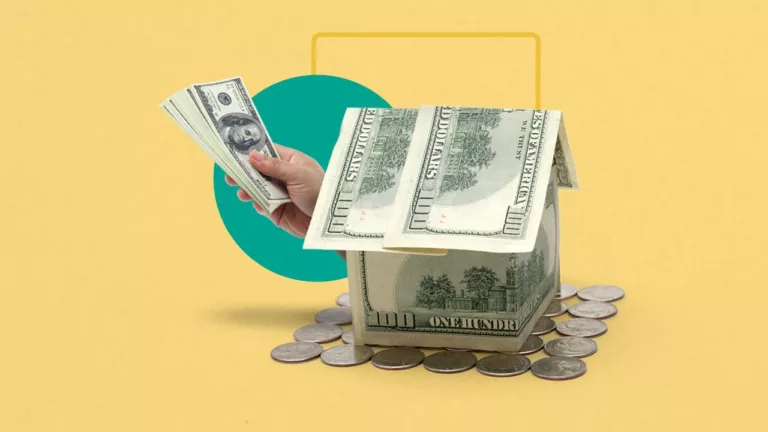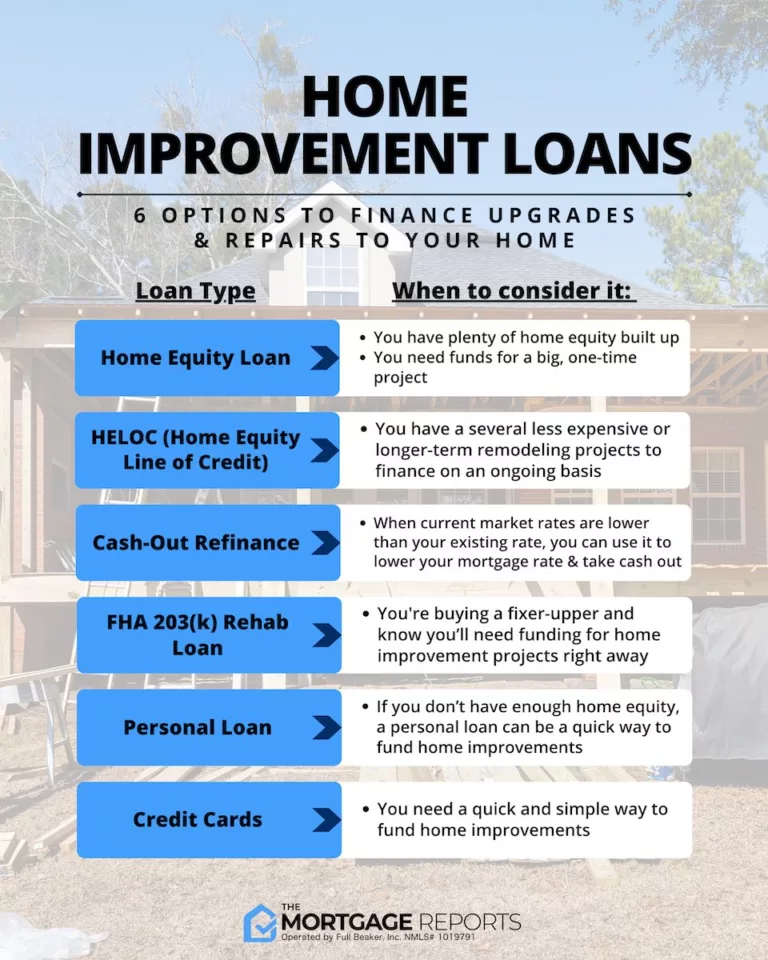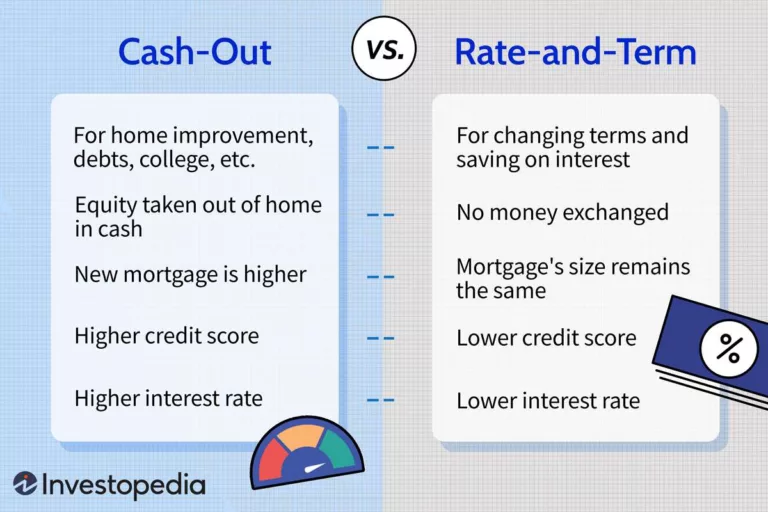Can You Sell a House With a Mortgage? Discover the Secrets to a Successful Sale!
Yes, you can sell a house with a mortgage. Here’s how it works.
Selling a house can be a complex process, and having an existing mortgage adds another layer of complexity. However, it is indeed possible to sell a house even if there is an outstanding mortgage on it. We will explore the steps and considerations involved in selling a house with a mortgage.
Whether you are looking to upgrade to a bigger home, downsize, relocate, or simply want to sell your property, understanding the intricacies of selling a house with a mortgage is essential. So, let’s delve into the details and learn how you can successfully sell your house while still having a mortgage.

Credit: blog.hubspot.com
Selling A House With A Mortgage
If you’re considering selling your house but still have a mortgage to pay off, you might be wondering if it’s even possible. The good news is that selling a house with a mortgage is indeed possible, although it does come with some important considerations. In this article, we’ll explore the pros and cons of selling a house with a mortgage and take you through the steps involved in the process.
Ppros Of Selling A House With A Mortgage/p
- You can have more flexibility in choosing when to sell your house since you don’t have to wait until your mortgage is fully paid off.
- If you’re selling your house in a seller’s market, you may be able to sell it for a higher price than what you paid for, potentially earning a profit.
- By selling your house, you can relieve yourself of the responsibility of mortgage payments and potentially free up cash for other purposes.
Pcons Of Selling A House With A Mortgage/p
- You’ll need to pay off your mortgage in full when selling the house. If the proceeds from the sale aren’t enough to cover the mortgage balance, you’ll have to bring cash to the closing table.
- If you sell your house for less than what you owe on your mortgage, you’ll still be responsible for the remaining balance, known as a deficiency.
- Depending on your mortgage terms, you may face prepayment penalties or other fees for selling the house before the loan term ends.
Pstep 1: Determine Your Home’s Value/p
To start, you’ll need to assess the current value of your home. Consider hiring a professional appraiser or consulting with a local real estate agent to get an accurate valuation.
Pstep 2: Calculate Your Equity/p
Next, calculate how much equity you have in your home. Subtract the remaining mortgage balance from the estimated selling price to determine your equity.
Pstep 3: Consult With Your Mortgage Lender/p
Before proceeding, it’s crucial to contact your mortgage lender and discuss your plans to sell. They can provide you with information about any prepayment penalties, administrative fees, or other potential hurdles.
Pstep 4: Prepare Your Home For Sale/p
Get your house ready for potential buyers by decluttering, making necessary repairs, and staging it effectively. Consider working with a professional home stager or real estate agent to maximize your home’s appeal.
Pstep 5: Find A Buyer And Negotiate The Sale/p
Work with a real estate agent or list your property on online platforms to find potential buyers. Once you receive offers, negotiate the terms of the sale, including the price and any contingencies.
Pstep 6: Close The Sale And Pay Off Your Mortgage/p
Finally, close the sale and use the proceeds to pay off your mortgage. If there’s a shortfall, be prepared to bring additional funds to settle the remaining balance.

Credit: www.facebook.com
Preparing Your Mortgage For Sale
Selling a house with an existing mortgage can be a complex process, but with proper preparation and guidance, it is indeed possible. One of the crucial steps in this process is preparing your mortgage for sale. By reviewing your mortgage terms and contacting your mortgage lender, you can navigate the process smoothly and ensure a successful sale.
Reviewing Your Mortgage Terms
Before putting your house on the market, it’s important to review your mortgage terms and understand the implications of selling your house with an outstanding mortgage. Start by examining the interest rate on your loan, the remaining balance, and any potential prepayment penalties. This information will give you a clear understanding of your financial obligations and help you plan your selling strategy accordingly.
Additionally, you should familiarize yourself with your mortgage’s repayment options. Some mortgages have provisions that allow you to sell the house without fully paying off the remaining balance. These options may include assumable mortgages, in which the buyer takes over your existing loan, or a due-on-sale provision, which requires the loan to be paid off upon the sale of the property. Understanding these options will allow you to make informed decisions throughout the selling process.
Contacting Your Mortgage Lender
Once you have reviewed your mortgage terms, the next step is to contact your mortgage lender. This is a vital step that will enable you to gain clarity on the specific requirements and procedures involved in selling a house with an outstanding mortgage.
When contacting your mortgage lender, it’s important to provide them with accurate and updated information regarding your intent to sell. Be prepared to discuss your plans, provide necessary documents, and inquire about any potential fees or penalties associated with selling your house with a mortgage.
Remember, open communication with your mortgage lender can help streamline the selling process and prevent any unforeseen issues from arising. By informing your lender in advance, you can also explore possible options for transferring your mortgage to the buyer or negotiating a suitable repayment arrangement.
Preparing your mortgage for sale is a critical step in selling a house with an outstanding mortgage. By reviewing your mortgage terms and contacting your lender, you can gain the necessary insights and guidance to proceed with confidence. So, take the time to carefully navigate this process and ensure a successful sale that meets your financial goals.
Determining Your Home’s Market Value
Selling a house with a mortgage requires determining your home’s market value. Find out how to navigate this process seamlessly.
Evaluating The Current Real Estate Market
Before selling a house with a mortgage, it’s crucial to evaluate the current real estate market. Understanding the market conditions will help you determine if it’s a good time to sell and set the right asking price.
Factors to consider when evaluating the real estate market:
- Housing demand and supply
- Interest rates
- Economic conditions
- Job market
A seller’s market, where demand exceeds supply, can be ideal as it often leads to higher property prices. However, in a buyer’s market with more supply than demand, it may be more challenging to sell your house quickly.
Getting A Home Appraisal
A home appraisal is an essential step in determining the market value of your house with a mortgage. It provides an unbiased estimate of how much your property is worth based on various factors such as:
- Location
- Size and condition of the house
- Comparable sales in the area
- Recent renovations or improvements
During the appraisal process, a certified appraiser will visit your property, assess its condition, and compare it to similar homes in the neighborhood. They will consider both the interior and exterior of the house, along with any unique features or upgrades that could affect its value.
Benefits of getting a home appraisal:
- Accurate assessment of your property’s worth
- Peace of mind knowing you’re setting the right asking price
- Negotiating power during the selling process
Keep in mind that the appraised value may differ from the market value, which can fluctuate based on buyer demand and other market factors. However, a reliable appraisal is an essential tool to guide you in determining your asking price.
Negotiating With Potential Buyers
Selling a house with a mortgage can indeed be challenging, but it’s not impossible. By negotiating with potential buyers, you can find common ground and navigate the process smoothly. Build trust, be upfront about the mortgage, and explore options like assumption or loan assumption to close the deal successfully.
Advertising Your Home For Sale
Selling a house with a mortgage can be a complex process, but with the right strategies, it is definitely achievable. One of the first steps in the journey is advertising your home for sale. Effective advertising will help you attract potential buyers and generate interest in your property. Here are some tactics you can employ:
- Professional Photography: Capture high-quality images of your home to showcase its best features. Good visuals can make a significant difference in attracting potential buyers.
- Compelling Description: Craft a well-written description that highlights the unique selling points of your property. Focus on the location, amenities, and any recent renovations or upgrades.
- Utilize Online Listing Platforms: Take advantage of popular real estate websites and social media platforms to reach a wider audience. Include detailed information and plenty of attractive photos.
- Open House Events: Hosting open house events gives buyers an opportunity to see the property in person and ask questions. Spread the word locally and online to maximize attendance.
Handling Offers And Negotiations
Once you start receiving offers on your house, it’s time to navigate the negotiation process. Negotiating with potential buyers is an essential step in selling a house with a mortgage. Here are some key considerations:
- Review Offers Carefully: Take time to thoroughly evaluate each offer before responding. Consider the proposed price, contingencies, financing terms, and any additional conditions.
- Counteroffers: Don’t be afraid to negotiate and make counteroffers if the initial offer isn’t satisfactory. Remember, the goal is to find a mutually beneficial agreement.
- Be Flexible: Keep an open mind during negotiations. Consider compromises that may help you close the deal, such as adjusting the closing date or including certain appliances or furniture.
- Seek Professional Advice: If negotiations become complicated or you’re unsure about certain terms, it’s wise to consult with a real estate agent or attorney who can provide expert guidance.
- Keep Emotions in Check: Selling a house can be emotionally challenging, but try to remain level-headed during negotiations. Keeping emotions at bay will allow you to make rational decisions.
Navigating The Selling Process With A Mortgage
Selling a house with a mortgage can be done, but it requires careful navigation of the process. Understanding the steps involved can help ensure a successful sale while still managing your mortgage obligations.
Coordinating With Your Mortgage Lender
In the process of selling a house with a mortgage, one crucial aspect is coordinating with your mortgage lender. This step is essential to ensure that all parties involved are on the same page and to navigate any potential challenges smoothly. Coordinating with your mortgage lender involves open communication and providing them with the necessary information regarding your intent to sell the property. They will assist you in understanding the outstanding balance on your mortgage and any potential penalties or fees associated with paying it off early. Once you have decided to sell your house, it’s crucial to inform your mortgage lender as soon as possible. This early communication enables you to understand the specific requirements and steps involved in selling a house with an existing mortgage. Your lender may require additional documents or paperwork from you, such as a preliminary closing statement or a payoff demand letter.Paying Off Your Mortgage
A significant consideration when selling a house with a mortgage is how to handle paying off your existing mortgage. There are a few options available to homeowners in this situation. One common approach is to pay off the mortgage balance entirely from the proceeds of the sale. This option allows you to close the mortgage account upon selling the property. It’s essential to work closely with your mortgage lender and the closing agent to ensure the correct payoff amount is calculated, including any accumulated interest or fees. If you prefer not to pay off the mortgage in full, another option is to transfer the mortgage to the buyer. This process is known as an assumable mortgage. However, it’s important to note that not all mortgages are assumable, and there may be certain criteria or requirements set by the lender for the buyer to assume the mortgage. The third option is to negotiate a loan assumption with the buyer. In this case, the buyer agrees to take over the existing mortgage payments and assume the responsibility for the remaining balance. However, it’s crucial to involve the mortgage lender in these discussions to ensure that all parties are in agreement and to address any necessary paperwork or legal requirements. Navigating the selling process with a mortgage can seem overwhelming, but with proper communication and coordination with your mortgage lender, it can be a smooth and successful experience. Understanding your options for paying off your mortgage is key to making informed decisions and ensuring a seamless transition of ownership. Remember, each situation is unique, and consulting with professionals such as real estate agents, mortgage lenders, and attorneys is advisable to navigate this process effectively.
Credit: www.bankrate.com
Frequently Asked Questions For Can You Sell A House With A Mortgage
Can You Sell House Before Paying Off Mortgage?
Yes, you can sell your house before fully paying off the mortgage. However, you’ll need to use the proceeds from the sale to pay off the remaining mortgage balance.
Can You Keep A Mortgage After Selling House?
Yes, you can keep your mortgage after selling your house. It’s possible to transfer your mortgage to another property or continue making payments until it’s fully paid off. However, it depends on your specific mortgage terms and the agreement with your lender.
Can I Transfer My Mortgage To Someone Else?
Yes, you can transfer your mortgage to someone else. This process is known as mortgage assumption or transfer of ownership. Always consult with your lender to find out if it is possible and what steps you need to take.
How Do You Sell When You Have A Mortgage?
To sell when you have a mortgage, follow these steps: 1. Calculate your remaining mortgage balance. 2. Determine your home’s market value. 3. Subtract the mortgage balance from the market value. 4. Consider any additional costs such as real estate agent fees.
5. Ensure you can afford to pay off the remaining balance to fully sell your home.
Conclusion
Selling a house with a mortgage is indeed possible, but it requires careful consideration and planning. From preparing the necessary documents to assessing your financial situation, it’s crucial to be well-informed throughout the process. By effectively communicating with your lender, exploring options such as refinancing or using a sale contingency, and working with a reliable real estate agent, you can navigate the complexities and successfully sell your house with a mortgage.
With the right approach, you can achieve your goal of selling your property and moving forward with your plans.



